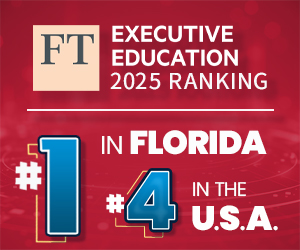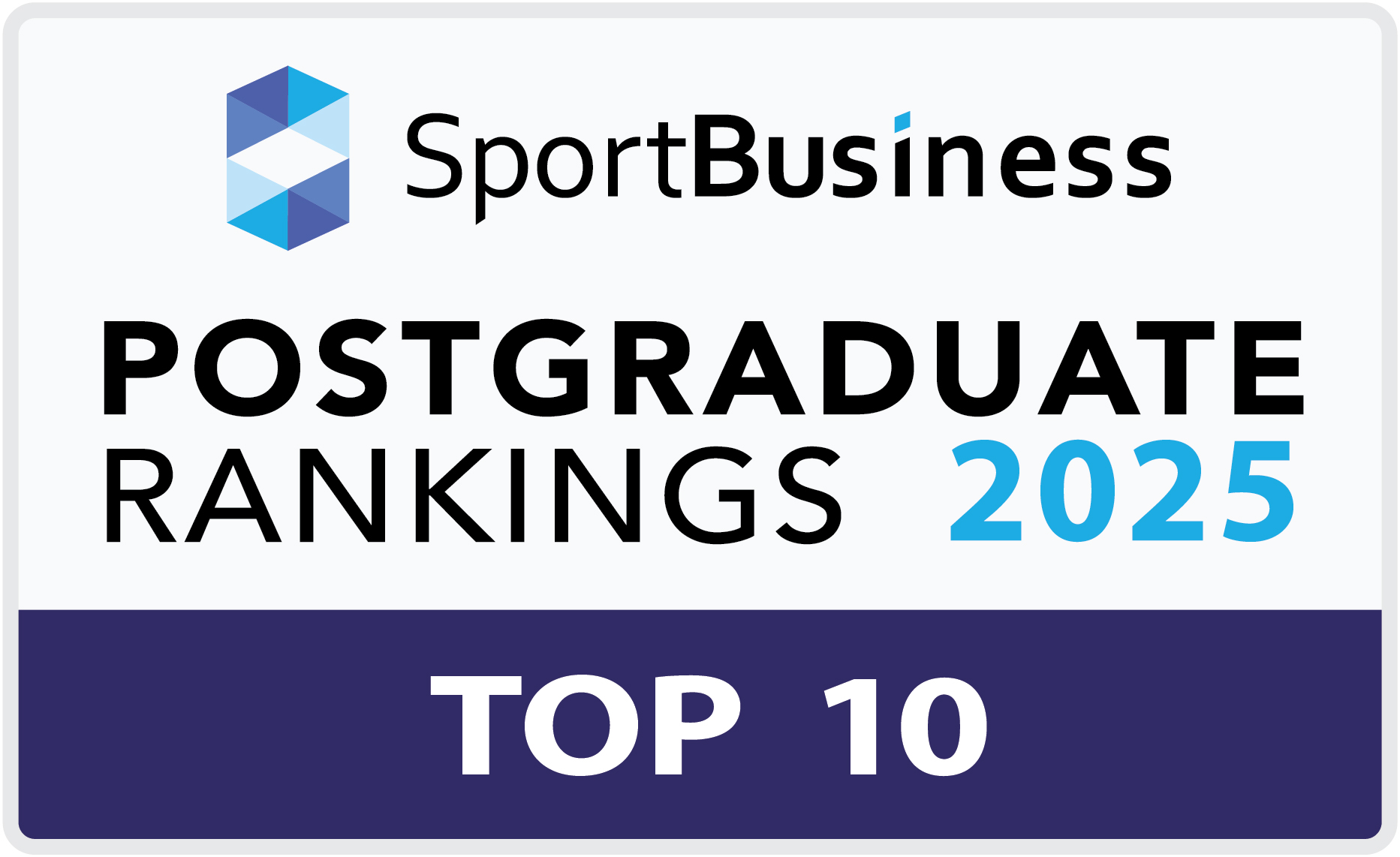MBA in Sport Management (MBA SPORT) Curriculum
The MBA in Sport Management is 40 - 43 credits whether you take it on campus or online.
- 28 credits core MBA
- 12 credits specialization - Sport Management
- 3 foundation credits - Financial Accounting: Foundation accounting may be waived with a previous grade of “B” or better
DOWNLOAD MBA SPORT CURRICULUM PDF
All courses listed below are 3-credits except where indicated.
Sport Management Core Courses
Managing the Sport Enterprise (SPB 6815)
This course provides a broad overview of the various sport management industries and
factors that impact long and short-term business operations in the sport industry.
Sport Law (SPB 6406) - 2 credits
Course illustrates how general legal precepts and principles are applied to the sports
industry. Industry specific topics include collective bargaining agreements, Title
IX, franchise agreements, merchandising, television rights, endorsements, contractually
obligated incomes, and stadium/arena issues.
Sport Marketing (SPB 6716) - 2 credits
Students gain an understanding of the various aspects of sport marketing: market research,
promotions, advertising, public relations, and sport marketing strategy.
Financial Aspects of Sport Management (SPB 5817) - 2 credits
Course examines general concepts, theories, and principles of the discipline of financial
management in sport organizations. Specific areas of discussion include tax, facility
financing, valuation of professional franchises, contractually obligated income, sponsorships,
leases, lease negotiations, and fundraising.
Sport Business Analytics (GEB 6905) - 1 credit
This course will give students exposure to a variety of ways that data analysis can
be applied in the sports industry, in both team operations and business operations.
Sport Management Specialization Courses
Students will choose to take one of the following two electives:
Management of Sport, Entertainment, and Convention Venues (SPB 6306) - 2 credits
Course provides students with a comprehensive look into the management of sport, entertainment,
and convention facilities. The entire spectrum of this industry will be covered from
feasibility studies and design to the contracting, running, and selling of an event.
Students will receive overviews of specific department and job tasks.
Management and Administration of Intercollegiate Athletics (SPB 6106) - 2 credits
Course is designed to show the management, administration, and operation of an athletic
department in a college or university. Focus is on marketing, promotion, finance/accounting,
human resources, production and operations of an athletic department.
MBA in Sport Management Core Curriculum Courses
Financial Accounting Concepts (ACG 6027)
Fundamental principles applicable to the accounting cycle, asset valuation, income
determination, financial reporting, basic business taxes, and owner's equity.
Communication Skills for Business Professionals (GEB 6217)
Written and verbal communication skills are integrated components in the Executive
MBA program. Students must demonstrate communication proficiency appropriate to both
the academic and professional environments.
Leadership and Executive Forum (GEB 6931) - 1 credit
This course is comprised of presentations by and seminar-like interaction with entrepreneurs
and executives focusing on the practical nature of business development. Students
and executives discuss current challenges facing business and industry today and consider
alternative ways of meeting these challenges.
Global Environment of Management (MAN 6937)
Topics include regulation and deregulation, technology, ecology, national industrial
policy, social responsibility and ethical reasoning, human resource issues, the globalization
of economic conditions, security issues, and environmentalism as they affect global
managers.
Advanced Analysis of Accounting Data (ACG 6315)
An analysis of financial and managerial accounting. This course includes financial
and managerial accounting concepts, with an emphasis on use of accounting information
in decision making.
Marketing Management in a Global Environment (MAR 6815)
A study in the application and integration of marketing factors within the decision
framework of the firm.
Advanced Financial Management (FIN 6806)
Theory and practice of financial planning and management. It emphasizes the capital
structure of business enterprise, its cost of capital and its evaluations. Applications
of quantitative methods to capital theory.
Management of Information Systems and Technology (ISM 6026)
A study of evaluation of information systems: Types, development and use. Emphasis
is on understanding information systems in the context of managerial use, problems,
and opportunities.
Operations Management (MAN 6501)
An introduction to major managerial problems and decision processes of operations
management. Includes topics such as: forecasting, design or production systems, simulation,
modeling, using decision trees and PERT, analysis of univariate and multiple time
series, quality control, just-in-time systems, and decision support systems.
Leadership and Organizations (MAN 6296)
Understanding and practice in the use of behavioral science concepts for analyzing
the behavior of individuals and groups in formal organizations. Concepts will be applied
to the analysis and discussion of cases.
Global Management Strategy and Policy (MAN 6721)
Strategy, its formulation, articulation, and implementation. Review of current theory
and practices and case studies as well as the role and responsibility of the general
manager in managing the business enterprise.
















